The Sad, Secret Life of a Spy
A fascinating new documentary seeks to unravel the mysteries of William Colby, or, as the title would have it, “The Man Nobody Knew."A fascinating new documentary seeks to unravel the mysteries of, as the title would have it, “The Man Nobody Knew."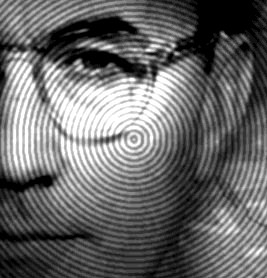
William Colby was, frankly, a nerd — but a nerd with a mission. He was a lifelong spy, or, perhaps more properly, a spymaster, who rose through the ranks of the CIA to become its director and something of a martyr to the cause of not letting the right hand know what the left hand was doing. His son, Carl Colby, has now made a fascinating documentary that seeks to unravel the mysteries of, as his title would have it, “The Man Nobody Knew.”
Good luck with that. You leave the film knowing next to nothing about the man, but with the suspicion that he was a psychopath of secrecy, a man devoted to his job, of course, but essentially friendless and utterly detached from normal human feelings. There is a chill in this movie that finally defies explanation, though not perhaps a certain compassion. It also, inferentially, raises one huge, unanswerable question: At the end of the day, we are left wondering whether all the billions we spent on espionage since the end of World War II produced anything that was worth the cost. The suspicion remains that the CIA was a bunch of losers in frenzied pursuit of ludicrous plans that gave the United States no particular or permanent advantage in either the secret world or the public sphere.
Carl Colby understandably does not raise that question in his film. It is a given that his father’s work was important. If it was not, it was a lie of near epic, and near tragic, dimensions. No son can live with that knowledge.
William Colby was a Princeton University and Columbia Law School graduate, a devoted Catholic, and a man who had a good war, parachuting into France and Norway during World War II, where he blew up bridges, disrupted rail lines and, so far as we can tell, had a good time doing so. After the war he married the elegant Barbara Heinzen (easily the most fascinating figure in this film), with whom he would have five children and, in 1951, Colby joined the newly formed CIA and began his rise through its ranks. He proved himself in Italy, supporting the Christian Democrats in their struggle to keep the powerful communist party from seizing power there. In 1959, he was transferred to Saigon, where things went somewhat less swimmingly.
There were some modest, if controversial, successes — for instance, the strategic hamlet program, which was supposed to isolate rural villages from communist influences — but also some notable failures, including the overthrow and assassination of the South Vietnamese president, Ngo Dinh Diem, and his brother, a coup engineered by President Kennedy and his gang (with whom Colby did not agree). He was close with the Diems, or as close as he could be, given his constipated emotional nature, but he stayed on throughout the unraveling of the situation in Vietnam. By the time the helicopters were hovering over our embassy there, he was chief of the CIA’s Far Eastern division, and in 1973 President Nixon appointed him head of the CIA.
Before Colby took over, however, the outgoing CIA director ordered his senior staffers to report on agency activities that might be construed to be outside its “legislative charter.” The memos responding to this order became known as the “family jewels” and Colby locked them in his safe, while testifying some 30 times before congressional committees, hoping to restore public faith in the CIA, which did not happen. In 1975, he was replaced as agency director, he divorced, remarried and 20 years later he died in a boating accident.
What are we to make of this life lived mainly in the shadows? Mostly, I suppose, that a bureaucrat’s life can never be an entirely happy one. You can’t even enjoy — at least Colby could not — the pleasures of pillow talk. His wife cannot recount even one instance where she was privy to his secrets. She raised the children, went to his social events (where he was mostly uneasy) and, to some degree, enjoyed the good life as it is vouchsafed to well-placed Americans living in the relative splendor of faraway places with strange-sounding names. But it was a sad and furtive life. If it contained some modest triumphs, this film is at a loss to recount them. If the film itself has any triumphs, they are surely modest too and pretty much lost in the paperwork.
This does not mean “The Man Nobody Knew” is a failure. It is, in fact, a notable success in that Carl Colby so earnestly searches for his father’s secrets, so touchingly grasps at those rare moments when this damaged man reveals some tiny bit of vulnerability. I don’t deny that William Colby was a natural for his job, but what a terrible price we pay for keeping our secrets — especially the ones that the state bids us keep. Being a closed mouth in an allegedly open society is a very bad deal. In the long run of history, the secrets don’t matter because eventually they all become irrelevant and we are left only with the high, human cost of keeping them. This is, in its way, one of the saddest movies I’ve ever seen. And one of the most instructive too.
Your support matters…
Independent journalism is under threat and overshadowed by heavily funded mainstream media.
You can help level the playing field. Become a member.
Your tax-deductible contribution keeps us digging beneath the headlines to give you thought-provoking, investigative reporting and analysis that unearths what's really happening- without compromise.
Give today to support our courageous, independent journalists.
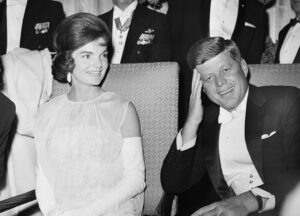
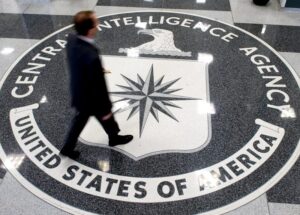
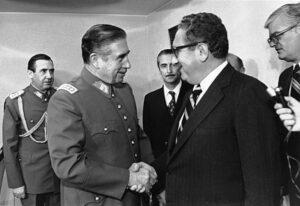
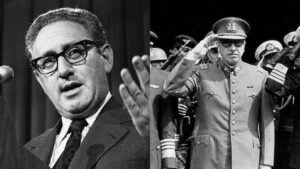


You need to be a supporter to comment.
There are currently no responses to this article.
Be the first to respond.